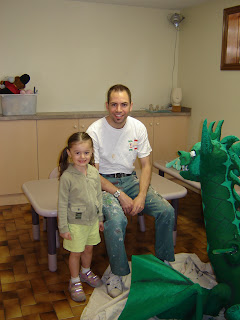
For months I have been listening to the news and speaking to kindergarten teachers to learn the truth behind the media hype that earlier schooling is the answer to the educational woes of Ontario’s Children.
A caution to the wise. Don’t be fooled by the ads showing children happily building with blocks. Most kindergarten classes have none and many teachers are pumping out work sheets faster than a new found oil well. I am not criticizing teaching methods simply stating the facts as they have been shared with me.
About a year ago, I rummaged through a box of old treasures and came across my report cards dating as far back as senior kindergarten. I was pleasantly surprised to see that in the 1960’s we were not catalogued by marks but just by brief comments on our social skills and willingness to work. That system was not far off the mark in what should still be considered the most important element in the development of our youngest citizens; an eagerness to learn and form relationships.
What really caught my attention was the suggestion to my parents to read to me more frequently to improve my literacy skills. My parents were immigrants. They barely spoke English so how could they read to me or understand anything I read to them. Tutoring was not an option; even if it had been available my parents could not have afforded it. Was I destined to be illiterate because I was not reading in SK or barely by the end of grade 1? My own daughter did not start reading until she entered grade 2. Born on December 28th she was always the youngest in her class and her teachers fretted that she had learning disabilities. That was not the case. Today she is a university student who excels in literacy.
I am an Early Childhood Educator and have had the extreme honour of working with young children for the last thirty years. I have watched as the demands placed on children have crippled the very essence of childhood. We overload our children pushing them to do more in shorter amounts of time. From the cradle, we introduce sign language, toilet train before they walk, have them memorize alphabets and numbers as toddlers. We enroll them in sports, music, math program, little reader programs, swimming gymnastics, computer classes; need I add more. Their schedules are more regimented than that of their working parents. What are we hoping to gain by all of this?
And now on top of all this we add one more thing to their young lives; full day schooling as early as JK & SK. Some children will be entering school as young as 3.8 years, just barely out of diapers, still needing an afternoon nap, someone to assist with their physical needs, ensure they eat a good warm lunch and healthy snacks, someone to clean their noses and wipe away tears.
First and foremost our children need tender loving care; the foundations for building good social relationships. They need to run and play, to explore and be inquisitive, to ask open ended questions and to work in conjunction with educators who believe that, “Education is not the filling of a pail but the lighting of a fire.” (William Butler Yates)
Childhood researchers such as Piaget, Vigotsky, and Maria Montessori, all identified that children must be in the right mindset to acquire definitive skills. Introducing them earlier will not produce better learners just overburdened children. So what’s the rush?
What do our children need to be better learners?
Environments that engage, challenge and honor childhood in conjunction with educators who believe that children, even very young ones, are capable of generating their own interests. Like adults, when children pursue that which fascinates them they are more apt to be intrigued, eager to learn and participate. The Reggio Approach is a philosophy that honors this mind set. Originating from Reggio Emilia in Italy this unique system has produced the best preschools in the world. Perhaps our government should use this model as a guideline to understanding what best serves our youngest citizens. Institutionalizing them earlier is not the answer.
Our fondest memories of school are not the ones that taught us the facts of history, algebra and trigonometry, 85 percent of those facts were forgotten moments after the test. The sweetest memories, those that shape us into the people that we become, are the memories of field trips, sports events, extra curricular activities and friendships.
To every thing there is a season, and a time to every purpose. (King James Bible) Let our children enjoy theirs.
Send me your comments.




























